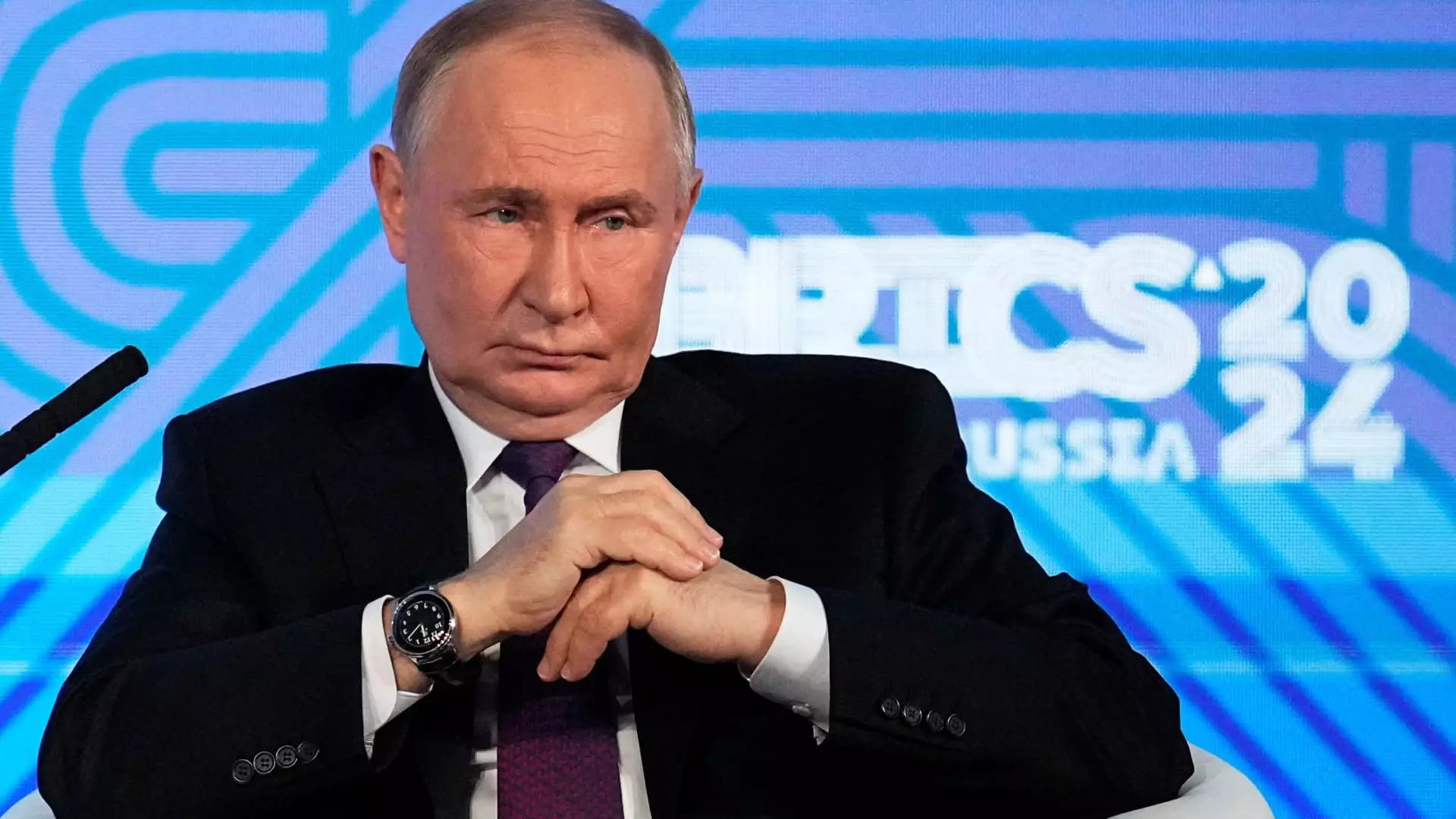The BRICS coalition—comprising Brazil, Russia, India, China, and South Africa, along with recent additions like Egypt, Ethiopia, Iran, and the UAE—has taken center stage in discussions surrounding the future of global economic growth. This emerging group is increasingly perceived as a formidable alternative to Western-centric narratives, as underscored by Vladimir Putin’s recent remarks regarding the coalition’s potential to reshape international economic landscapes. The upcoming BRICS summit, scheduled for October 22-24 in Kazan, Russia, presents a pivotal opportunity for member economies to consolidate their positions on the world stage.
In anticipation of the summit, President Putin has voiced strong optimism about the economic prospects of BRICS nations, asserting that they will be the primary engines of global growth in the forthcoming years. Stressing a trajectory toward economic sovereignty, Putin anticipates a reduced dependency of these nations on Western economies, primarily shaped by the geopolitical dynamics stemming from ongoing tensions, particularly related to Russia’s actions in Ukraine. This perspective frames BRICS as a vital player navigating the complexities of the global economy, potentially serving as a catalyst for a multipolar world order.
Putin’s emphasis on BRICS countries’ collective capacity to insulate themselves from external economic pressures signals a broader trend: an evolving paradigm that encompasses new trade frameworks and financial systems. The assertion that these nations are “drivers of global economic growth” paints a picture of a coalition ready to champion a diversified global economy that is less beholden to Western financial institutions and currencies.
The summit’s agenda includes deliberations on the potential expansion of BRICS—an indicator of the rising interest from various nations in aligning with this bloc. Putin’s assertion that “30 countries around the world” have shown willingness for collaboration highlights the coalition’s magnetic appeal in a world increasingly skeptical of U.S. hegemony. This shift hints at a broader reconfiguration of global alliances that could disrupt longstanding economic norms.
The Kremlin’s portrayal of the summit as a defiance of Western isolation attempts suggests that BRICS is not merely an economic assembly but a political alliance with strategic ambitions. The notion that “the doors are open” for collaboration implies a welcome mat extended to nations seeking alternative alliances, reinforcing the message that BRICS is positioning itself as a viable alternative in the global arena.
Turning the spotlight on financial mechanisms, Putin hinted at a series of innovative initiatives, such as the conception of a SWIFT-like financial messaging system, increasingly necessary in an era where traditional mechanisms are often viewed as tools for geopolitical leverage. The idea of harnessing national digital currencies to facilitate investment signifies a strategic move towards self-sufficiency and operational independence—core tenets of economic sovereignty.
Notably, the New Development Bank, as the sole functioning multilateral development institution within BRICS, is poised for transformative impacts. Putin’s call for an emphasis on technology and infrastructure investment directly addresses the developmental disparities facing nations in the Global South. By framing the bank as an alternative to Western financial institutions, he positions it as a localized solution tailored to meet the specific needs of developing economies.
Additionally, the focus on enhancing trade connectivity through ambitious infrastructure projects reflects a forward-thinking approach. Putin’s vision for transport megaprojects, including the Arctic Sea Route and the North-to-South corridor, underscores the importance of bolstering logistics and trade routes not just for BRICS nations, but for a larger pool of developing economies. By facilitating increased freight transportation between continents, these initiatives could potentially unlock new economic opportunities and fortify global supply chains.
As the BRICS coalition gathers in Kazan, it stands not only at the crossroads of economic opportunity but also at a transformative juncture in global politics. With ambitious goals of increasing economic sovereignty, fostering collaboration, and promoting innovative financial solutions, BRICS is set to redefine the contours of international trade and investment for years to come. The outcomes of this summit could very well offer insights into the future of a multipolar world, challenging the status quo and asserting the significance of emerging economies in shaping global destiny.


Leave a Reply